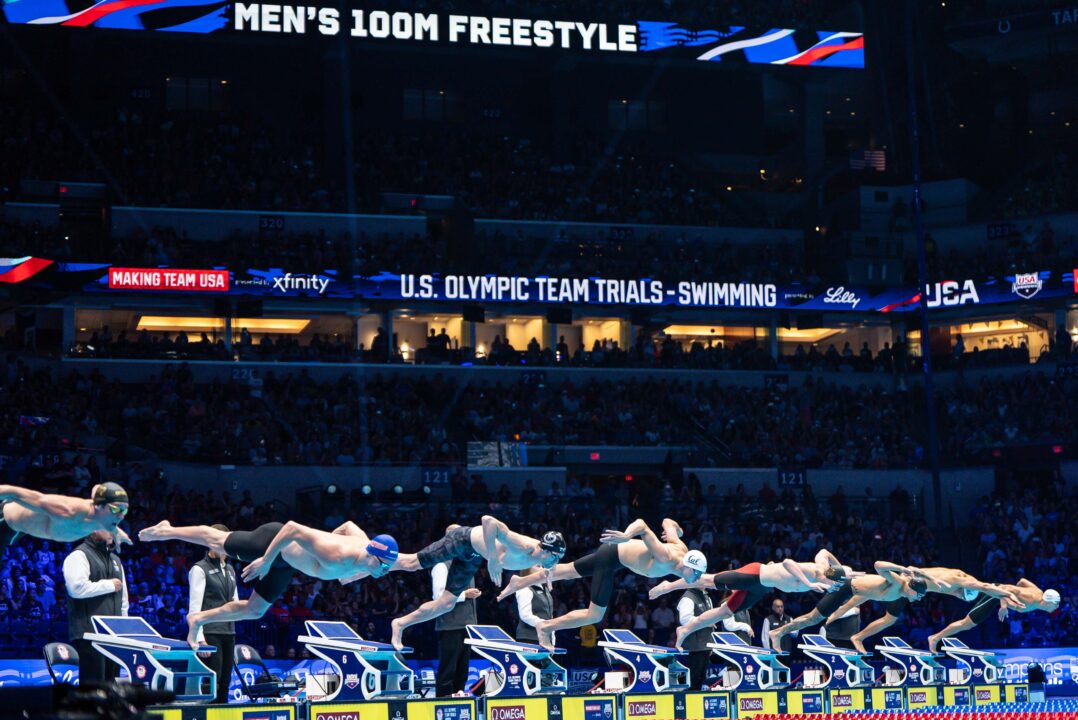This summary of a study is courtesy of Joseph Stanford, a researcher in Nottingham Trent University’s School of Science and Technology. You can read the full paper here.
Being self-centered, ruthless and manipulative is believed to help elite athletes achieve glory – but could be negatively impacting relationships with coaches, a new study suggests.
Sports scientists at Nottingham Trent University also found that relationships could suffer when coaches were high in these traits. The researchers investigated the personalities and relationship quality of more than 300 elite athletes and their coaches via a series of established measures. They were looking specifically at a group of personalities known as the ‘Dark Triad’, which consists of narcissism, psychopathy, and Machiavellianism.
While these traits are perceived negatively in the general population, they may offer advantages within high-performance settings such as elite sports. Until now, however, it has not been known how these traits might impact the important relationship between athletes and coaches. The study found that the more self-centered a coach was – or the higher their level of narcissism – the less responsive they were to their athlete’s needs. At the same time, if a coach and athlete were similarly self-centered, they would feel less trusting of one another. When coaches reported high levels of ruthlessness – or psychopathy – the less they liked, were committed to, and were willing to do their best for their athletes, the study found. Athletes with high levels of ruthlessness, meanwhile, felt less at ease when working with their coach and respected them less. And when coaches reported a higher ability to manipulate – or greater levels of Machiavellianism – they behaved less complimentary towards their athletes. Athletes high in this trait became more uncommitted, distant, and uncooperative, the research revealed.
“Specific characteristics considered malevolent in social settings are highly relevant in performance sport,” said lead author Joseph Stanford, a researcher in Nottingham Trent University’s School of Science and Technology.
“High-performance environments can often attract people who feel superior, are ruthless in the pursuit of winning and have a heightened belief they can influence others for their own success,” he said.
“It is important to have a positive coach-athlete relationship in order to achieve success. To win, athletes and coaches must perform together under high pressure, often in demanding and stressful situations. Our findings suggest we need to consider how personalities are likely to interact together in the sporting arena. Additional support for coaches would also allow them to understand how to create effective high-performance relationships.”
Nottingham Trent University’s Dr Laura Healy, senior author on the study, said: “Our research shows why some coaches and athletes may struggle to work together – their unique personality traits make it hard to build a positive coach-athlete relationship.
“Helping coaches and athletes to understand who their partner is and how to work with them could lead to better quality coach-athlete relationships within elite sport contexts, ultimately benefitting performance and sporting experience.”
The researchers argue that the findings could be generalized to those in leadership positions and that organizations could consider the influence of leaders’ personalities on the people around them in order to maximize effectiveness and reduce friction. The study, which also involved Bangor University, is published in the journal Personality and Individual Differences.

I can think of plenty of great athletes who aren’t malevolent. I think the difference with those traits is whether they are happy in their sports or not.
“Helping coaches and athletes to understand who their partner is and how to work with them could lead to better quality coach-athlete relationships within elite sport contexts, ultimately benefitting performance and sporting experience.”
The problem with narcissistic psychopaths is that they lie about who they are, pretending to be something they’re not. The last thing they’re interested in is for people to understand who they really are. Anybody who questions them is slandered, bullied, and blackballed. For every successful athlete they’ve coached, there’s a slew of damaged athletes who quit the sport , change teams, or worse.
I think this has to be looked at through a developmental perspective for most elite swimmers, who range from
21-26 years old— still considered late adolescence. A hallmark of adolescence is narcissism—- so really the elite swimmers are just like everyone else their age!
to be great at something you have to be at least a little narcissistic
Sport is civilized warfare. A big reason the tradition of amateurism once existed was to keep the playing field free from excessive and abusive practices.
College football coach Woody Hayes once punched an opposing team’s player in a fit of anger. It was an unbelievable moment; almost hilarious on one hand, very sad on the other. (He never coached again after that.)
Of course, the great rivalries are fun, but are meant to be not much more than that. Yankees/ Redsox, Lakers/ Celtics, Aussies/ American swimmers.
It’s totally appropriate to trash talk your rival and get yourself psyched up. “We’re gonna smash you guys like guitars!” All part of the hype and excitement of sports.
But… Read more »
“I took that personally”
Bukayo Saka is too nice of a guy that’s why arsenal haven’t won yet. If you give this guy a bunch of puppies the nice lad will pet them. This summer I think Arteta should get him on the puppy kicker program to emulate these malevolent traits
An interesting article, but it doesn’t really mention what type of athletes they interviewed. Does this relationship hold for team sports? Are there gendered differences? Are these behaviours learnt? Are they modifiable? Would be good to get a broader perspective of this.